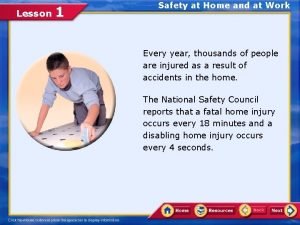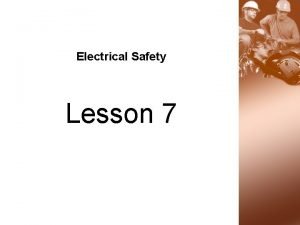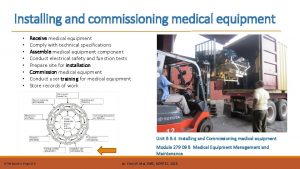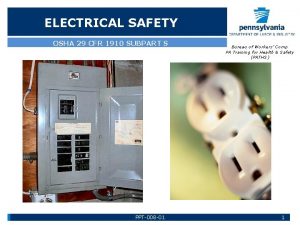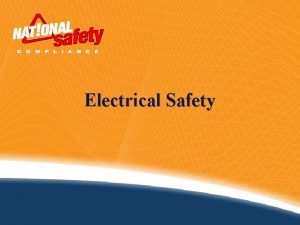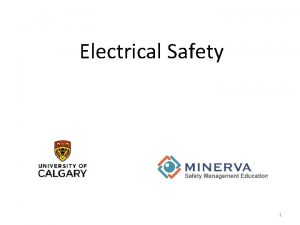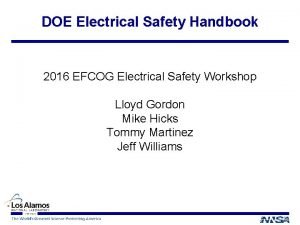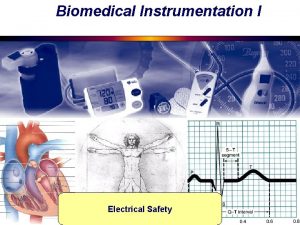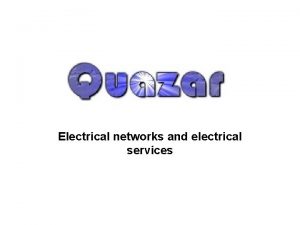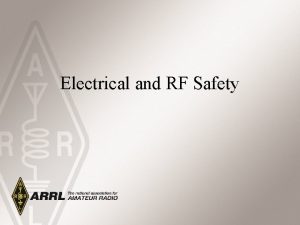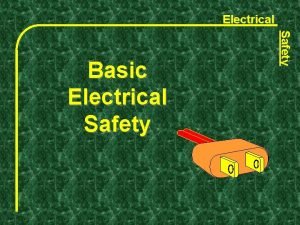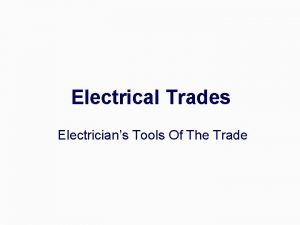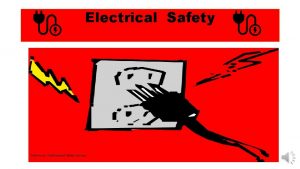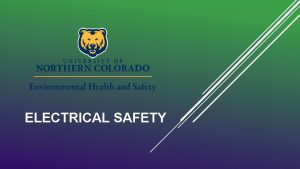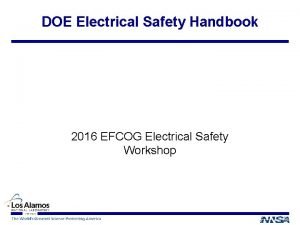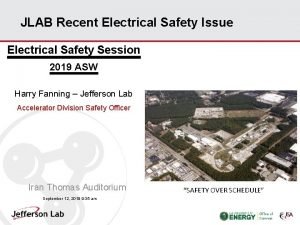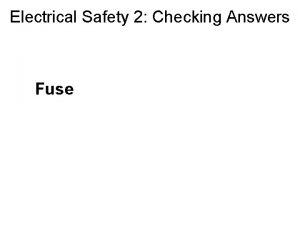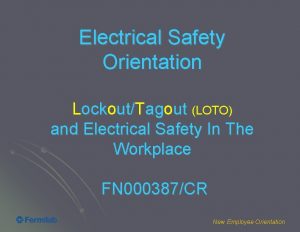Electrical Safety Lesson 7 The Electricians License Act











- Slides: 11

Electrical Safety Lesson 7

The Electricians’ License Act E 50 Electrical work can only be done by a licensed electrician. website: http: //web 2. gov. mb. ca/laws/statutes/ccsm/e 050 e. php 2

Effects of Electrical Currents Electrical currents can cause: Ø severe burns Ø injury Ø death 3

Severity of Electrical Shock Three factors affect the severity of electrical shock: Ø The amount of current flowing through the body (size of amperage) Ø The path of the current through the body Ø The length of time the body is in the electrical circuit 4

Hazards of ARC • Actual contact does not have to be made with a high voltage • An electrical ‘ARC’ can jump several inches from the conductor to nearby equipment. 5

Scenario #1 An electrician has to perform maintenance work on a lighting circuit in a business workplace. To do so, he turned off the circuit breaker at the panel box which is located some distance from where he was working. Leaving the panel box opened, he started working on the equipment. Spot the Hazard Could you think of some obvious hazards in the scenario described above? Who is at risk? Do you see any unsafe behaviour? Assess the Risk What kind of accident or injury could happen in the above situation? Why is it unsafe? Find a Safer Way What could be done to remove or reduce the danger or risk? Lesson 7 Learning Activity #7. 2 Slides #6 - #8 6

Scenario #1 – Answer Key Spot the Hazard Could you think of some obvious hazards in the scenario ? ● circuit breaker ● distance from work site Who is at Risk? ● electrician Do you see any Unsafe Behaviour? ● open panel box ● unsupervised panel box 7

Scenario #1 – Answer Key (con’t) Assess the Hazard What kind of accident or injury could happen in the above situation? ● severe burn, injury or death Why is it unsafe? ● electrical shock potential ● electrical fire potential Find a Safer Way What could be done to remove or reduce the danger or risk? ● close panel box ● post signage ● lock-out/tag-out. 8

Electrical Safety When working on electrical systems, machines or equipment, proper Lock-out and Tag-out procedures must be used at all times. Lesson 7 Learning Activity #7. 3 Slides #9 - #11 9

When Working Near Power Lines Ø Manitoba Regulation requires that when a machine, or any part of a machine, might come within 3 meters (10 feet) of any electrical transmission line, Manitoba Hydro must be notified before work commences. Manitoba Hydro will then de-energize, guard or re-route the electrical line, and confirm that protection has been provided. Ø Never lose awareness of the overhead hazard and location of the machine/machine parts. If work is conducted near an electrical transmission line, a person should be assigned by the employer to signal and warn the machine operator if any machine part comes within 3 meters (10 feet) of the power line. Ø Proper planning and precautionary action taken at the worksite prior to beginning the work, includes: Ø housekeeping - knock down spoiled lines, debris, etc. Ø identify hazards to all sub-contractors Ø know the limitation/capacity of the machine Ø know the experience/training and qualifications of machine operator 10

When Contact is Made with Energized Equipment Ø Don’t touch the equipment if you are on the ground next to it. Ø If you are operating mobile equipment that has contacted a power line, attempt to move it away from the line. Ø If you can’t move the equipment, remain on the equipment and call for help. Ø Warn anyone approaching not to touch the equipment. Ø Contact Manitoba Hydro immediately. Ø If no one is around and if faced with an emergency such as fire, jump with both feet together and hop or shuffle away from the equipment. 11
 What personality traits do electricians have
What personality traits do electricians have Lesson 1 electrical safety culture
Lesson 1 electrical safety culture Electrical safety worksheet answers
Electrical safety worksheet answers Lesson 1 electrical safety culture
Lesson 1 electrical safety culture Macbeth act 3-5 summary
Macbeth act 3-5 summary Electrical safety analyzer
Electrical safety analyzer 29 cfr 1910 subpart s
29 cfr 1910 subpart s How electricity works
How electricity works Electrical safety introduction
Electrical safety introduction Doe electrical safety handbook
Doe electrical safety handbook Microshock and macroshock
Microshock and macroshock Three elements of electricity
Three elements of electricity

